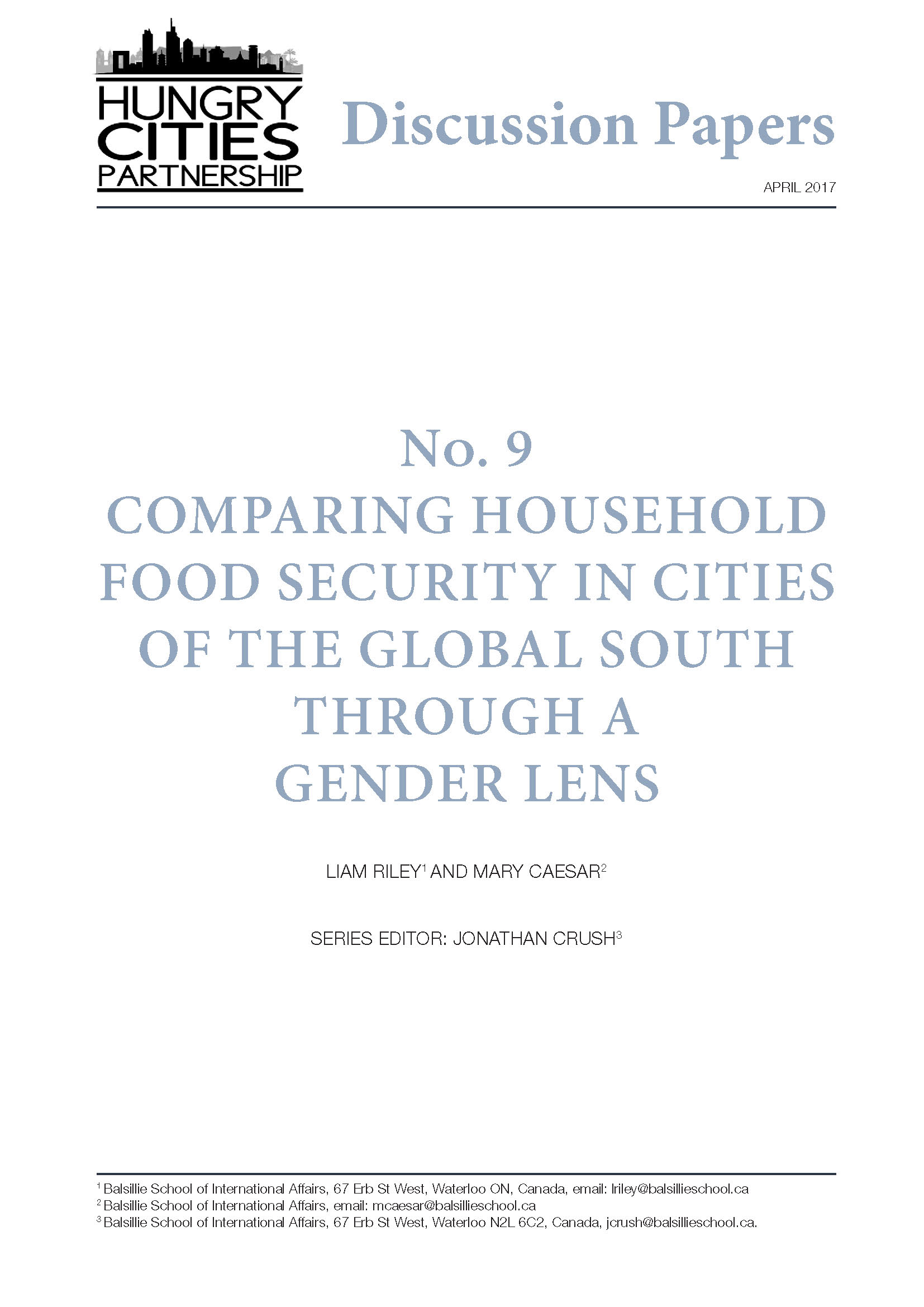Understanding the determinants of urban food insecurity requires sensitivity to local cultural contexts and taking into account a globally relevant framework for analysis. A gender lens is amenable to this kind of analysis because it is rooted in local configurations of households, livelihoods and consumption patterns, while also being animated by a longstanding global effort to create a world in which men and women are equal. This discussion paper is aimed at academic researchers and development practitioners concerned with urban food insecurity. It demonstrates the usefulness of a gender lens of analysis for generating new insights and questions about household food insecurity in an international context of comparative urban research. The data used in the paper is drawn from the Hungry Cities Partnership household food security baseline surveys in Maputo and Nanjing.

